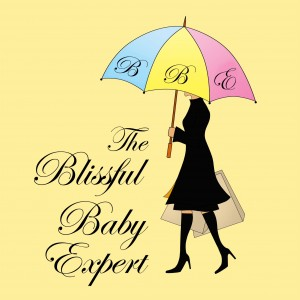What makes a professional nanny? It’s a question that comes up time and time and time again and I’m yet to find a satisfactory answer. It’s one I’ve attempted to answer hundreds of times in the course of my job. When someone asks me what a nanny is, I can tell them. When someone asks me what a nanny does, easy peasy. Then they spring the million dollar question on me – what makes a professional nanny?
Nannies don’t have to be registered. If they were it would be easy. We could say that a professional nanny is one that’s registered. Job done. But the current OFSTED register has nothing to do with professionalism, and you don’t even have to be on it which means there are hundreds, if not thousands, of professional nannies out there who don’t need to go through the hassle because their employers can’t get childcare vouchers. Then, dare I say it, there are people on the register who don’t deserve to be called professional nannies at all. Anyone can spend a weekend taking a course, pay up for insurance, get a DBS check. Hey presto! You’re OFSTED registered, but you’re not professional. You may not even have a job.
But just having a nanny job, or even having been a nanny for a couple of years, isn’t enough to make a nanny professional either. Professional nannies take pride in their work. Professional nannies are the ones who are constantly observing and reacting to their charges’ needs. Professional nannies understand the importance of ongoing training and personal development. And there’s a whole unspoken code of behaviour that professional nannies adhere to as well. For example, no professional nanny works without a contract and no professional nanny leaves a job without giving the notice in the contract. No matter how much you hate the family, a professional nanny doesn’t up and leave. You can, professionally, negotiate a reduced notice period or offer to take any holiday due, but you don’t just not turn up for work. Of course you can rant and rave and threaten to walk out but when it comes down to it you wouldn’t.
Walking out is just one sign of a lack of professionalism. A professional nanny wouldn’t go through their bosses’ wardrobe and wear their clothes. A professional nanny doesn’t socialise on work time without permission. A professional nanny doesn’t eat their employers out of house and home. It’s all about boundaries. A professional nanny knows where they are, and if s/he doesn’t then s/he is professional enough to ask the question.
So already a professional nanny is one who makes a career out of it, who keeps up with the latest guidance and research, who seeks to develop his or her skills, who has a legal employment relationship with the parents of his or her charges, who communicates in a clear, sensitive and timely way with their employers, who respects boundaries…. I could go on, but it would take me all day and it’s not really supposed to be the point of the blog post. No matter what you think being a professional is, being professional is important.
No nanny exists in isolation. Even when there are no other nannies in the area the actions of a nanny towards his or her change and his or employers represent all nannies everywhere. You may be the only nanny a person sees, and if nannies as a profession want to be taken seriously then all nannies need to act it. Next time you go to a nanny interview and the parents sit there and want to pay you a net salary without declaring tax and national insurance it’s your professional duty to explain why it’s wrong. When you need to discuss something that isn’t going well having a track record of acting professionally means that your employers or an agency will take you more seriously. And when you see unprofessional behaviour from another nanny you need to call them on it.
I know what you’re thinking. “Hang on a minute. I need to be professional but we don’t know what professional is….even someone from the association of professional nannies doesn’t know what it is”. Yes, to a point. But I’m thinking you know what professional means to you, and I’m thinking you have an idea of what is and isn’t acceptable behaviour for nannies. So even if my idea of professionalism and you idea of professionalism aren’t identical, I think we can agree on the broad picture, and I think it’s time to act.
Frances Norris is the Policy & Review Officer for the British Association for Professional Nannies. She is involved in representing nannies to the Government, most recently concerning the tax free childcare scheme and giving evidence to the Childcare Payments Bill committee. She is still working on an answer to get her million dollars.

 Today we’ve got a special guest blog from Tanya, talking about her transition from being a nanny to motherhood.
Today we’ve got a special guest blog from Tanya, talking about her transition from being a nanny to motherhood.